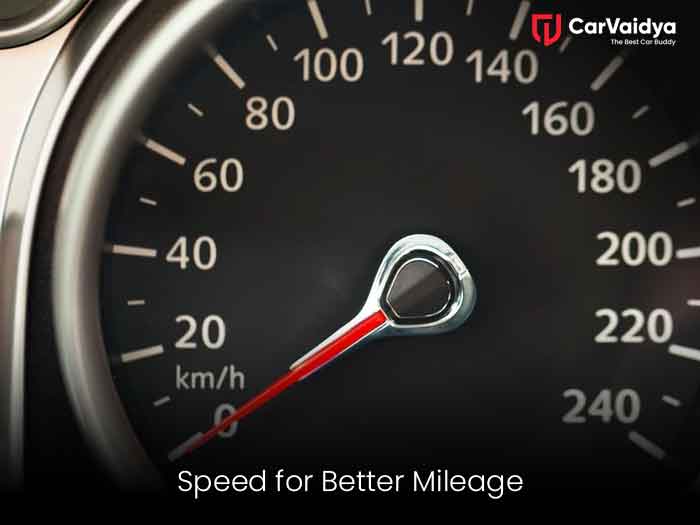Understanding Fuel Efficiency
Fuel efficiency is a measure of how well a vehicle converts fuel into usable energy for propulsion. It is typically expressed in miles per gallon (MPG) or kilometers per liter (KPL). The key to improving fuel efficiency lies in optimizing the factors that influence the overall performance of the vehicle.
Engine Efficiency
The efficiency of the engine is crucial in determining fuel consumption. Modern engines are designed to operate efficiently within a certain speed range, known as the "sweet spot." This range is often around 45 to 65 miles per hour (72 to 105 kilometers per hour) for many vehicles. Operating your car within this range can lead to optimal fuel combustion and better mileage.
Aerodynamics and Drag
Aerodynamics play a significant role in a vehicle's fuel efficiency. As speed increases, air resistance, also known as drag, becomes more pronounced. The higher the speed, the more energy is required to overcome this resistance. To minimize drag and improve fuel efficiency, it is advisable to keep windows closed at higher speeds and remove roof racks when not in use.
Driving Conditions
The terrain and road conditions also impact fuel efficiency. Uphill driving requires more power and fuel consumption, while downhill driving allows for fuel-saving opportunities. Maintaining a consistent speed on level roads is generally more fuel-efficient. Traffic conditions and frequent stops and starts can decrease overall mileage, making smooth driving a key factor.
Vehicle Maintenance
Proper maintenance is crucial for optimal fuel efficiency. Regularly servicing your vehicle, including checking and replacing air filters, spark plugs, and maintaining proper tire pressure, can significantly impact fuel consumption. A well-maintained engine operates more efficiently, contributing to better mileage.
Cruise Control Usage
Cruise control can be a valuable tool for maintaining a constant speed and improving fuel efficiency on long stretches of road. However, it may not be as effective in hilly terrain or heavy traffic. Understanding when to use cruise control can contribute to achieving better mileage.
Hybrid and Electric Vehicles
The rise of hybrid and electric vehicles has introduced new considerations for optimizing fuel efficiency. Electric vehicles often achieve maximum efficiency at lower speeds, making city driving more economical. Hybrid vehicles utilize a combination of internal combustion engines and electric power, allowing for enhanced fuel efficiency in various driving conditions.
Eco-Driving Techniques
Implementing eco-driving techniques can significantly improve fuel efficiency. This includes gentle acceleration and deceleration, avoiding unnecessary idling, and using higher gears at lower speeds. These practices contribute to smoother driving and reduced fuel consumption.
Real-World Examples
To illustrate the impact of speed on fuel efficiency, consider two scenarios. In the first scenario, a vehicle travels at 55 mph (88 kph), while in the second scenario, it travels at 75 mph (120 kph). The second scenario generally consumes more fuel due to increased air resistance. Real-world experiments and studies often confirm that moderate speeds lead to better mileage.
Conclusion
In conclusion, determining the ideal speed for better mileage involves a combination of factors such as engine efficiency, aerodynamics, driving conditions, and vehicle maintenance. While there isn't a one-size-fits-all answer, maintaining a moderate and consistent speed within the recommended range for your vehicle is a good starting point. Additionally, adopting eco-driving practices, optimizing vehicle maintenance, and considering the impact of aerodynamics can further contribute to achieving better fuel efficiency.
In essence, the key lies in finding a balance that suits your specific driving conditions and vehicle characteristics. By understanding and implementing these principles, you can make informed decisions to maximize fuel efficiency and minimize the environmental impact of your vehicle.
You can read some other articles
The Advantages Of Automatic Climate Control In Vehicles
The Signification Of Vehicle Registration Plate Colors
Quick Tips Cool Your Car’s AC For Instant Relief

